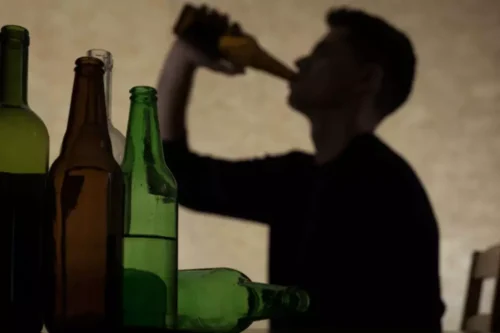
If you are still experiencing withdrawal symptoms after three days, talk to your healthcare provider. While tapering off alcohol can be done independently, it’s how to taper off alcohol highly recommended to seek professional guidance throughout the process. Consulting with a healthcare professional, addiction specialist, or therapist who specializes in alcohol addiction can provide valuable support and guidance. When it comes to tapering off alcohol, having a well-thought-out plan is essential for success. Some people avoid medically supervised rehab because they prefer natural remedies for alcohol withdrawal. Slowly tapering off alcohol is the safest way to naturally overcome alcohol withdrawal, and many at-home remedies can help you cope with mild withdrawal symptoms.
Build a Sober Community of Support
However, try not to have too many firm expectations, as symptoms can continue for multiple weeks in some people. It can be helpful to write down your reasons for quitting and the difficulty of withdrawal while it is fresh in your mind. Individuals should be prepared to be uncomfortable during this period and have medical help available if needed. This is the period in which delirium tremens is most likely to occur, which requires immediate medical attention. During the 12- to 24-hour time frame after the last drink, most people will begin to have noticeable symptoms. These may still be mild, or the existing symptoms might increase in severity.
Alcohol Withdrawal Symptoms

People with alcohol use disorder should be monitored by a medical professional when withdrawing from alcohol. Moderate to heavy drinkers can also benefit from medical supervision in the acute withdrawal stage. For most people, alcohol withdrawal symptoms will begin sometime in the first eight hours after their final drink. Always consult a medical professional before starting any tapering schedule. Alcohol detox medications can make the process safer and more comfortable.
Tapering at Our Medical Detox Facility in Washington
- Depending on how much alcohol you drink to start with, the amount of time an alcohol weaning schedule takes may vary.
- The main difference between tapering and quitting alcohol cold turkey is how fast you quit.
- Because of the risk of a lower success rate and prolonged alcohol exposure, most healthcare professionals will recommend a professional detox over tapering.
- An example of a long-term goal would be to achieve complete abstinence from alcohol within six months.
They can help you decide if tapering is the safest option for you. If you are thinking about quitting drinking, talk to your healthcare provider. Medical supervision, behavioral health treatment, and mutual-aid groups can help you through alcohol withdrawal and stay stopped. Once alcohol is stopped, your brain continues to be hyperactive until it readjusts to the absence of alcohol.
Support groups, from Alcoholics Anonymous to SMART Recovery, are one free way to find a community of people on the same journey. There are also a number of anti-craving medications to help you avoid drinking again, or even help with your tapering process. Finally, finding a therapist or a recovery coach can help you develop new coping mechanisms and move forward in your life. Usually, alcohol withdrawal symptoms occur within 12–24 hours after stopping alcohol and can last 2–10 days.

People who want to reduce their alcohol consumption often do not realize how much of their social and daily routines alcohol has become. Tapering alcohol may be uncomfortable, and there may be subconscious triggers that stimulate the desire to drink alcohol. Stress is a common trigger that makes it hard to modify your alcohol intake. Finding a different, more healthy way to unload stress may go a long way in helping someone succeed in cutting back on their alcohol use.

Medical professionals can provide appropriate interventions, including alcohol withdrawal medication or alcohol detox at home, to ensure your safety throughout the process. When you quit drinking, you should also seek medical advice about any alcohol withdrawal symptoms you experience. This includes early symptoms of alcohol withdrawal, such as mild tremors and anxiety. The reason for this is that alcohol withdrawal symptoms can quickly snowball and worsen. Mild anxiety, for example, can turn into overwhelming agitation or even hallucinations. When symptoms become that serious, it can be difficult to seek help.

While it is possible for some to wean off alcohol at home, it is highly inadvisable to do so without first consulting with medical and addiction treatment professionals. Alcohol withdrawal can be fatal, especially when someone attempts to go through it unsupervised. Also, your insurance should cover addiction treatment services, so look for therapists and/or rehabs in your network to help reduce https://ecosoberhouse.com/sober-house-boston/ the costs. Once you know it is medically safe to stop drinking, you should loop in a therapist or addiction specialist. They will be able to help you uncover the underlying causes of your drinking issues and properly diagnose any co-occurring mental health conditions that you may be suffering from. Quitting drinking, “cold turkey,” means you suddenly stop consuming alcohol.
